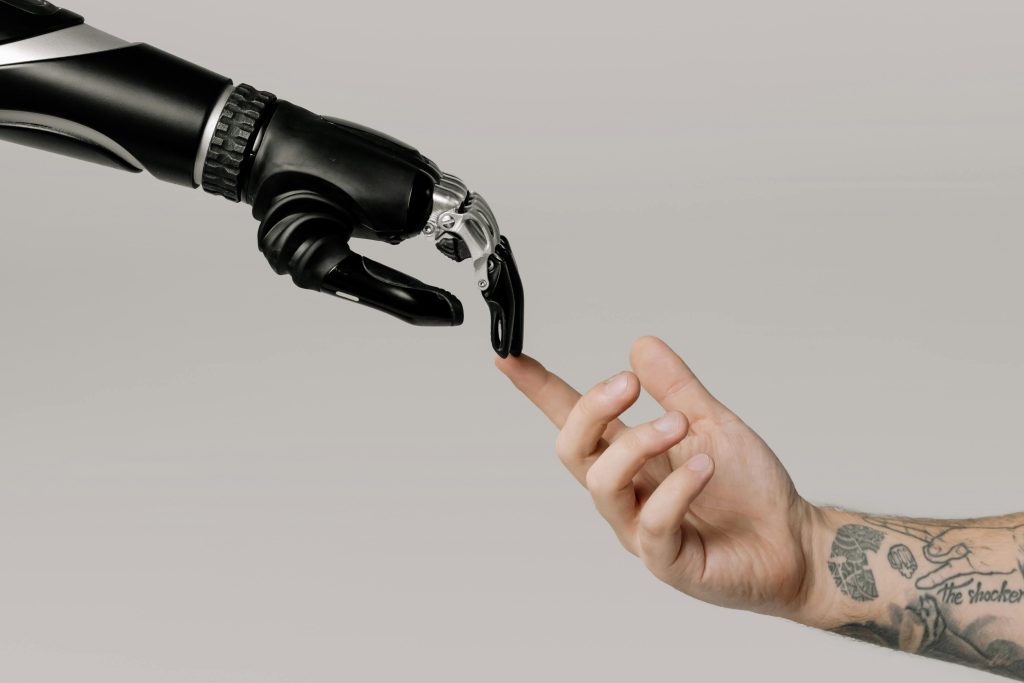AI Isn’t That Scary

Artificial Intelligence (AI) often elicits a mix of excitement and fear, especially within industries like automotive businesses that are traditionally reliant on human expertise and hands-on interaction. However, AI’s transformative potential should not be overshadowed by apprehension. Here are a few reasons why AI isn’t as scary as it might seem, particularly for automotive businesses.
1. Enhancing, Not Replacing Human Roles
One of the biggest fears surrounding AI is the potential for job displacement. However, in the automotive industry, AI is more about enhancement than replacement. AI tools can take over repetitive and mundane tasks, such as scheduling appointments or managing inventory, freeing up human employees to focus on more complex and rewarding activities. By handling routine tasks efficiently, AI allows staff to concentrate on providing superior customer service and making critical business decisions that require a human touch.
2. Improved Customer Experience
AI can significantly enhance the customer experience by offering personalized and timely interactions. Chatbots like ChatGPT can provide 24/7 customer support, answering queries, booking appointments, and offering tailored recommendations based on customer preferences. This level of service ensures that customers receive immediate assistance, improving satisfaction and loyalty without overwhelming your human staff.
3. Data-Driven Decision Making
For automotive businesses, making informed decisions is crucial. AI systems excel at analyzing vast amounts of data to uncover patterns and insights that might be invisible to the human eye. Tools like Tableau can help businesses understand market trends, predict customer behavior, and optimize inventory management. By leveraging these insights, automotive businesses can make data-driven decisions that enhance operational efficiency and profitability.
4. Predictive Maintenance and Reduced Downtime
AI’s predictive capabilities are revolutionizing maintenance in the automotive sector. AI-powered tools like IBM Maximo can analyze data from vehicle sensors to predict when a part is likely to fail, allowing for timely maintenance and reducing unexpected breakdowns. This not only minimizes downtime but also extends the life of vehicles and components, saving businesses money in the long run.
5. Customer Privacy and Data Security
Concerns about customer privacy are valid, but modern AI solutions prioritize data security and privacy. Many AI tools are designed with robust data encryption and privacy features to ensure that customer information is protected. Automotive businesses can implement AI while adhering to data protection regulations such as GDPR or CCPA. By being transparent with customers about how their data is used and ensuring strict security measures, businesses can build trust and mitigate privacy concerns.
While AI may seem daunting at first glance, its potential to enhance operations, improve customer satisfaction, and drive data-informed decisions makes it a valuable asset for automotive businesses. By focusing on the ways AI can complement human roles, improve efficiency, and offer practical, accessible solutions, automotive businesses can embrace AI as a tool for growth and innovation rather than something to fear. Addressing customer privacy concerns through transparent practices and robust security measures further ensures that AI integration benefits both the business and its customers.
Here are some references that specifically address why AI isn’t as scary as it seems, focusing on privacy concerns and the impact on human workers:
- Harvard Business Review – “Why AI Isn’t as Scary as You Think”:
- MIT Technology Review – “Debunking AI Myths: AI and Job Displacement”:
- Forbes – “AI: Friend or Foe? Why It’s Not as Scary as You Think”:
- The Verge – “Why AI Won’t Replace Human Jobs Anytime Soon”:
- ZDNet – “How AI is Enhancing Rather Than Replacing Human Jobs”:
- Brookings Institution – “Confronting AI’s Risks and Building Trust”:
